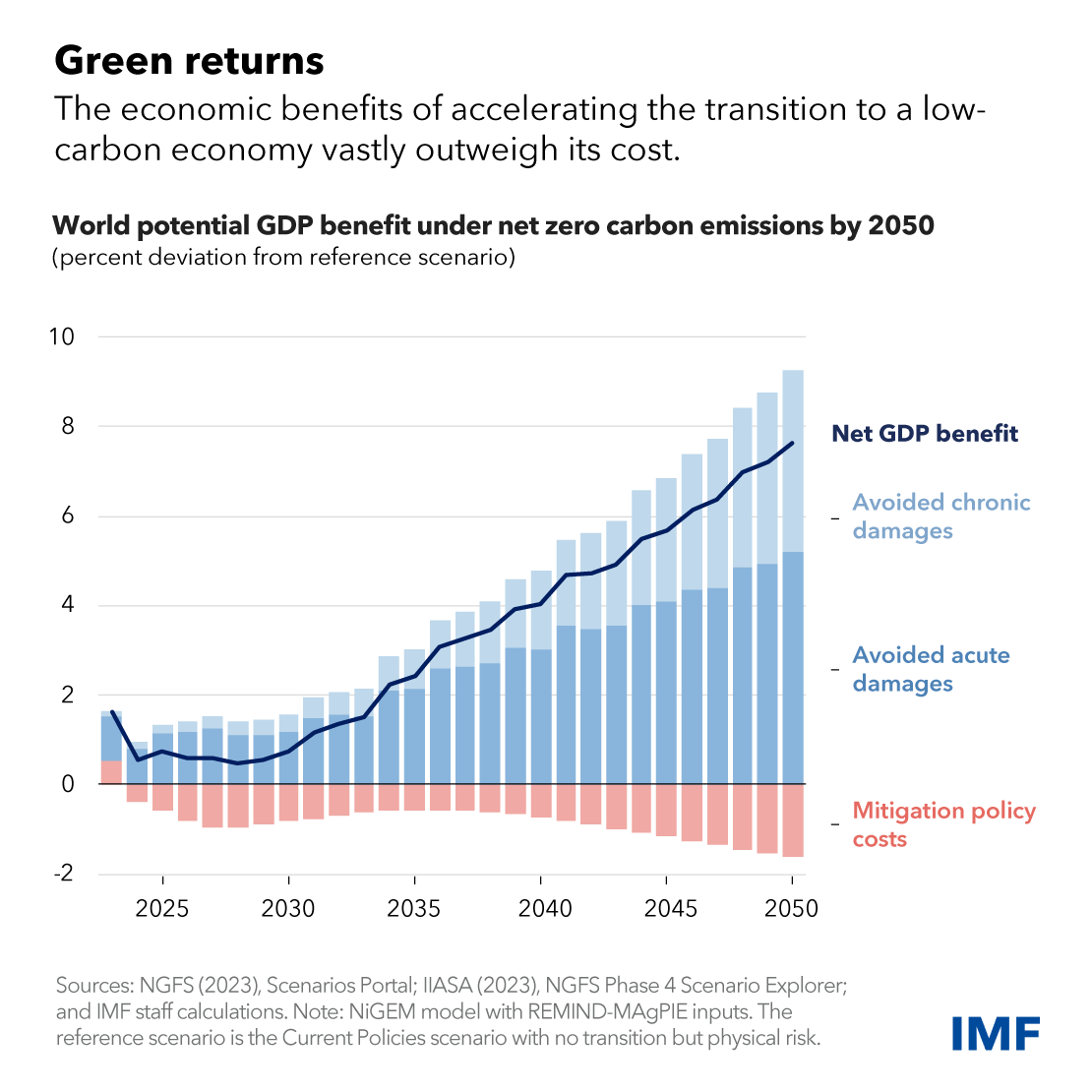Ensuring a lower-carbon future is not only necessary but also good for the economy, according to the latest climate scenarios from the Network for Greening the Financial System, a group of 127 central banks and financial supervisors working to manage climate risks and boost green investment.
The NGFS data come as world leaders gather in Dubai for the 28th United Nations Climate Change Conference, or COP28, to forge agreement on how to keep the planet from overheating.
As the Chart of the Week shows, making an orderly transition to net zero by 2050 could result in global gross domestic product being 7 percent higher than under current policies.
This year will be the warmest on record, according to the World Meteorological Organization. While temperatures are rising unevenly across the world, on average they are up 1.2 degrees Celsius from pre-industrial levels.
Economic and financial risks are rising too. NGFS models show that droughts and heatwaves are the largest source of risk across regions. Specifically, countries in Europe and Asia are most exposed to heatwaves, while countries in Africa, North America, and the Middle East are most vulnerable to droughts.
Transitioning to a low-carbon economy will have negative impacts on demand from higher carbon prices and energy costs. But these can be partially offset by recycling carbon revenues into government investment and lower employment taxes. Most importantly, lowering emissions will reduce the physical impacts of climate change, which lowers macroeconomic costs.
Transitioning to a net-zero economy will require substantial investment in green electricity and energy storage. How economies approach making this investment poses policy tradeoffs, as detailed in the October Fiscal Monitor.
The NGFS, established in 2017, aims to strengthen the global response in meeting Paris Agreement goals and helping the financial system manage risks. The climate scenarios, which are aligned with international best practices, supplement those of other international organizations such as the Intergovernmental Panel on Climate Change and the International Energy Agency.
The IMF is one of 20 international organizations that are NGFS observers, and actively contributes to the scenario design and analysis. A selection and visualization of key indicators from the NGFS climate scenarios is curated by the IMF on the Climate Change Indicators Dashboard.







